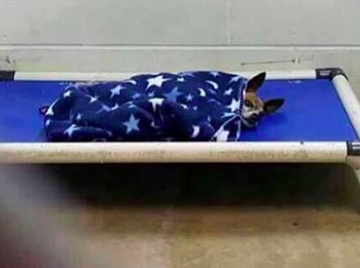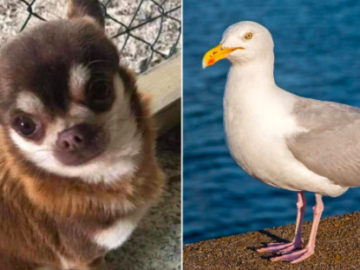Patients in a hospital in South Africa must have gotten quite a surprise when then had to share a ward with a 570lb lion.
Chaos, the lion, was receiving radiation treatment for skin cancer lesions on his nose, when he was taken to the Muelmed Mediclinic in Pretoria, northeast South Africa.

The 16-year-old big cat was brought into the hospital through a backdoor in order to avoid scaring the other patients. He was also both unconscious and strapped down.
He was treated by five of the hospitals radiotherapists, as well as an oncologist, since there are no radiotherapy facilities for animals in South Africa.
Chaos has been living at Lory Park animal and owl sanctuary all his life, having arrived there when he was just a few days old. His caretaker, Kara Heynis said Chaos’s treatment was pricey, but “absolutely worth it”.
“He is like our child so we will do anything we need for him,” she said.

The staff at the hospital ensured that the ward was clear of other patients before bringing Chaos it.
Hanri Reynolds, Radiation Specialist, spoke to News 24 and said, “We’re a registered zoological facility so he was accompanied at all times and had all the necessary permits.”
“We started the whole process of transporting him to the hospital at 10:30 and returned back home at 13:15,” he added, “There were no other human patients around while he was treated and he came into the hospital through a back door.”
Back at the sanctuary, Chaos is being kept in the shade of the enclosure that he shares with another female lion until he has completed his treatment, which is expected to finish in about a month.
Typically, it’s the animals without hair or fur, such as hippos, warthogs, and elephants, who are more likely to develop skin cancer.
In the wild, lions have an average life expectancy of around 14 years-old, but in captivity, that can go up to 22.
However, the life expectancy for farmed lions can be a lot different. Recently, pictures emerged of a farm in South Africa where lions are kept in appalling, cramped conditions before they were sold off to tourist attractions. These big cats were actually nearly bald from mange – a skin disease where parasitic mites cause severe itching, hair loss, and when left untreated for a while, the formation of scabs and lesions.

According to a report released by HSI, up to 12,000 animals a year, are bred on about 200 farms in order to feed an industry that’s been called a “snuggle scam”.
Following the reports, animals that are bred on these farms are then sent to petting centers where tourists are able to get close to these animals. From there, the lions can be shipped off to safaris or “walking with lions” tours, all which have the tourists blissfully unaware of all the suffering felt by these animals.
While we’re all hoping Chaos has a quick recovery, lets not forget next time we’re on vacation to skip the lion tours and not give our money to an industry that feeds off the exploitation of suffering animals.






